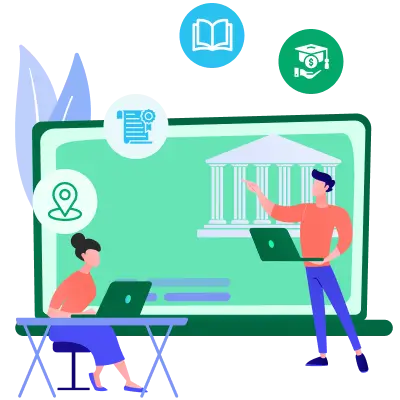What are the advantages of AI for educators and education
Education could undergo multiple changes as a result of AI. The effectiveness and efficiency of educational processes can be greatly improved thanks to the recent development of tools and applications driven by AI. AI offers a variety of advantages that can assist teachers and students alike, from personalised instruction to automated grading. Let's talk about the benefits of Artificial Intelligence for teachers and education.
Personalized learning
Personalized learning experiences is one of the main advantages of AI in education. AI-powered systems can examine student data, including their learning preferences and past performance, to design individualised learning routes.
Intelligent tutoring systems
Intelligent tutoring ways powered by AI can offer learners personalized feedback and guidance. To give pupils instructions and direction, these systems combine machine learning and natural language processing. Using intelligent tutoring systems, teachers may also find out where their students are having difficulties and offer targeted assistance to help them.
The administrative process
Teachers must do a variety of time-consuming and laborious administrative responsibilities, including as grading, keeping track of attendance, and scheduling. These job duties can be automated by AI-powered solutions, giving teachers more time to concentrate on teaching and communicating with students. When utilized to grade assignments, these technologies give teachers accurate and consistent grading while cutting down on the amount of time needed to grade assignments.
Virtual assistance
AI-powered virtual assistants can help and aid instructors in a variety of duties, from responding to student inquiries to suggesting lesson plans. It is simple for educators to acquire information and support because of the programming capabilities of virtual assistants that can recognize and answer to straightforward questions.
Individualized career advice
AI-enabled tools can be utilised to offer pupils customized career guidance. These tools can evaluate a student's academic performance, abilities, and interests to make career recommendations and offer appropriate courses and programs. Students can use this to ensure they are on the proper path to achieving their goals and to help them make well-informed decisions regarding the future.
Enhanced accessibility
Accessibility in education can be improved with the help of AI-powered solutions. Speech recognition software, for instance, can be used to provide closed captioning for students with hearing problems and to record lectures. AI-powered tools can also be used to develop Braille displays and other accessible content for children who have difficulties with vision.
Increased participation by students
Through interactive and immersive learning environments, AI-powered solutions can increase engagement among students. Applications for virtual reality and augmented reality can give students hands-on learning opportunities that are hard or impossible to recreate in a regular classroom environment.
Improving teacher training
AI-driven tools can also be utilized to enhance teacher development and training. For instance, virtual reality simulations can give teachers lifelike classroom settings to practise their teaching methods. Teachers can improve their teaching techniques by using personalized suggestions for improvement from AI-powered feedback.
Improved evaluation and assessment
AI can enhance educational assessment and evaluation. AI-powered evaluation systems, for instance, can offer more precise and consistent grading, lowering the possibility of prejudice and errors. AI-powered analytics can also give teachers insights on their students' performance and growth, enabling them to spot problem areas and adjust their teaching methods as necessary.
Supporting distance and hybrid learning
Remote and hybrid learning models have been adopted more quickly as a result of the COVID-19 epidemic, and AI-powered technologies can support these models. Students may receive a top-notch education from any location thanks to online learning systems driven by AI, virtual classrooms, and video conferencing.
Conclusion
With technologies driven by AI, educational processes can be made more effective and efficient in a variety of ways, from personalized learning to automated administrative work. While there are obstacles to be overcome, such as ensuring that tools powered by AI are impartial and ethical, there are substantial potential advantages of Artificial Intelligence in education. Learning experiences for students can be made more individualised and interesting, and student performance can be raised, if educators adopt AI.





